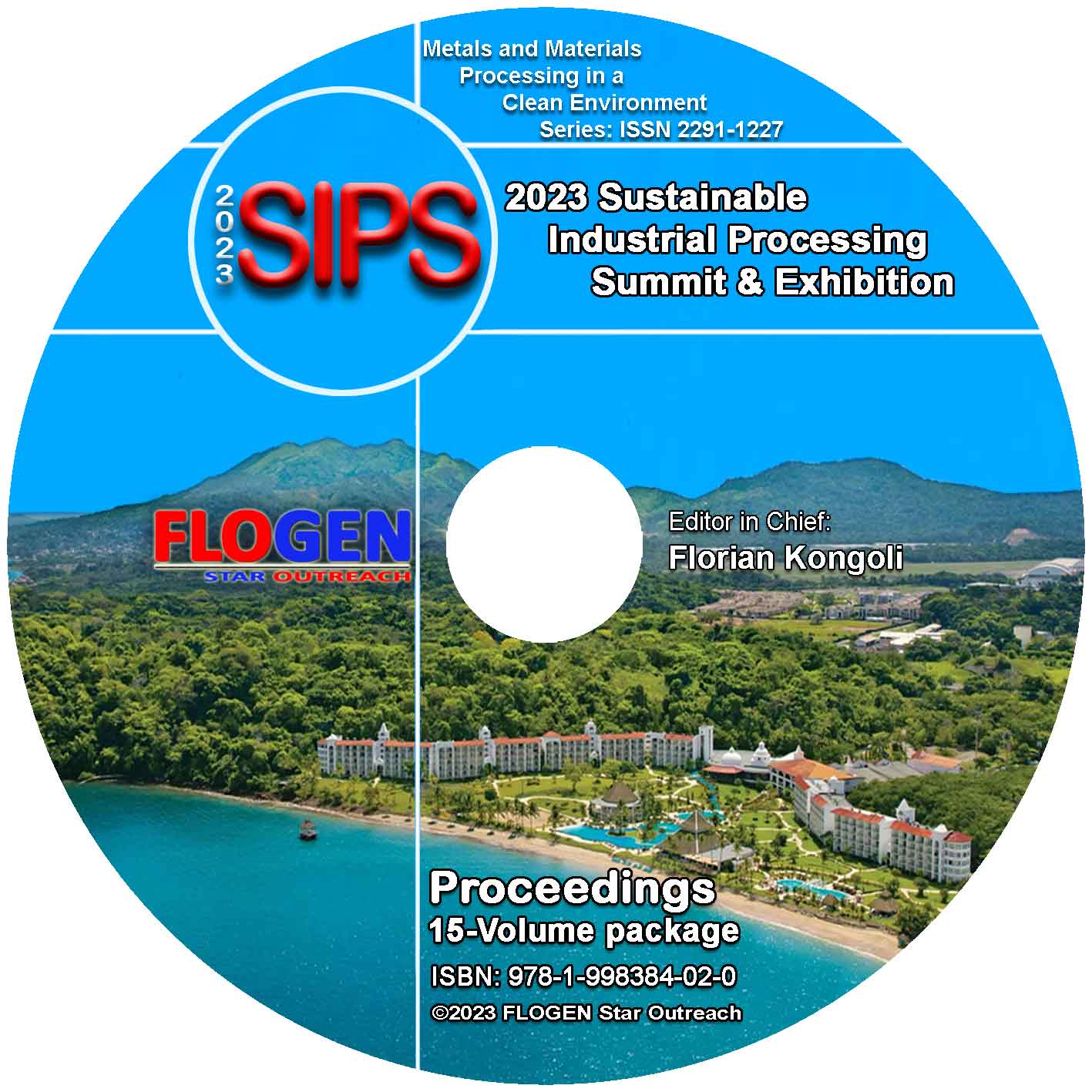2023-Sustainable Industrial Processing Summit
SIPS2023 Volume 13. Intl. Symp on Physics, Mathematics and Multiscale Mechanics
| Editors: | F. Kongoli, A. B. Bhattacharya, A.C. Pandey, G. Sandhu, F. Quattrocchi, L. Sajo-Bohus, S. Singh, H.S. Virk, R.M. Santilli, M. Mikalajunas, E. Aifantis, T. Vougiouklis, P. Mandell, E. Suhir, D. Bammann, J. Baumgardner, M. Horstemeyer, N. Morgan, R. Prabhu, A. Rajendran |
| Publisher: | Flogen Star OUTREACH |
| Publication date: | 21 December 2023 |
| Pages: | 298 pages |
| ISBN: | 978-1-989820-96-4 (CD) |
| ISSN: | 2291-1227 (Metals and Materials Processing in a Clean Environment Series) |

CD shopping page
FROM COLLAPSES RESULTING FROM MEASUREMENTS TO SPONTANEOUS PROJECTIONS
MarÃa Esther Burgos1;1UNIVERSIDAD DE LOS ANDES, Mérida, Venezuela;
Type of Paper: Regular
Id Paper: 245
Topic: 70
Abstract:
In Orthodox Quantum Mechanics (OQM) spontaneous processes are ruled by the deterministic Schrödinger Equation and measurement processes are governed by Born’s Postulate and the Projection Postulate. Conservation laws hold in spontaneous processes, but may be violated in individual measurement processes. In this latter case, however, conservation laws are maintained in a statistical sense [1].Â
Â
Â
Time Dependent Perturbation Theory (TDPT) accounts for every process involving time [2]. Since TDPT implies measurements (which require observers and/or measuring devices), billions of unnoticed observers and/or measuring devices would be required everywhere, at each small corner of the Universe where processes such as absorption and emission of radiation, radioactive decay and chemical reactions occur [3]. The lack of evidence to their existence seems unnoticed.
Â
Assuming that two kinds of spontaneous processes irreducible to one another occur in Nature, collapses resulting from measurements in the framework of OQM can be replaced by real spontaneous projections, induced by a tendency of the system to jump to the eigenstates of operators representing conserved quantities. These processes must be in compliance with the statistical sense of conservation laws [4]. The purpose of the present study is to show, step by step, how this replacement can take place. Several examples are given, in particular those involving transitions between stationary states induced by a time dependent perturbation.Â
Â
We end up with a version of quantum mechanics very close to OQMÂ but compatible with Philosophical Realism. Neither observers nor measurements appear in its axioms, as demanded by John Bell [5]. Some differences between OQM experimental predictions and those resulting from the theory here proposed could be tested by experiment.Â
Keywords:
Philosophical Realism; Conservation Laws; Time Dependent Perturbation Theory; Spontaneous ProjectionsReferences:
[1] Burgos ME. 2010. Contradiction between Conservation Laws and Orthodox Quantum Mechanics. In: Journal of Modern Physics. Volume 1. p. 137-142. https://doi:10.4236/jmp.2010.12[2] Dirac PAM. The Principles of Quantum Mechanics. Fourth Edition (Revised). Glasgow: Oxford University Press; 1958. p. 168.
[3] Burgos ME. 2022. Fake Measurements, Real Collapses. In: Sustainable Industrial Processing Summit and Exhibition, Volume 13: Virk Intl. Symp/ Physics, Technology & Interdisciplinary Research. p. 115-132
[4] Burgos ME. 1998. Which Natural Processes Have the Special Status of measurements? In: Foundations of Physics. Volume 28. p. 1323-1346.
[5] Bell M, Gottfried K and Veltman M. John S. Bell on the Foundations of Quantum Mechanics. Singapore: Word Scientific; 2001. p. 209.